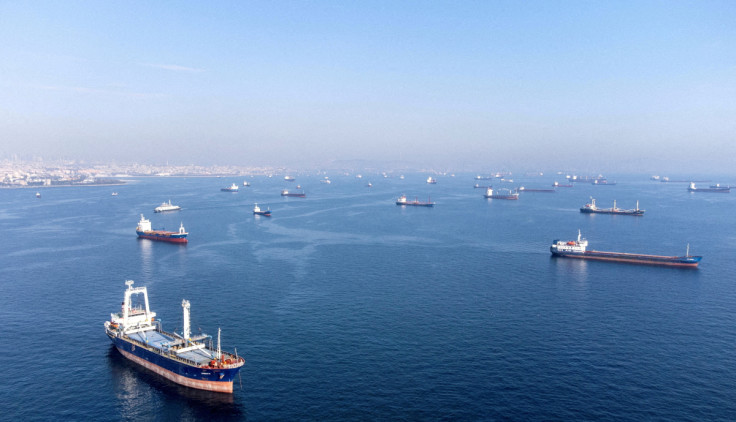Ukraine Has 'Plan B' To Continue Exports If Grain Deal Collapses - Minister

Ukraine would be ready to continue exporting grain across the Black Sea as part of a "plan B" without Russian backing if Moscow pulls the plug on the current grain export deal and it collapses, Ukraine's farm minister said on Friday.
The United Nations and Turkey brokered the Black Sea Grain Initiative between Moscow and Kyiv last July to help tackle a global food crisis aggravated by Russia's February 2022 invasion of Ukraine, a leading global grain exporter.
Agriculture Minister Mykola Solsky told Reuters that Russia had already blocked the use of Ukraine's major Black Sea port of Pivdennyi despite the deal and was allowing only one ship a day to deliver Ukrainian food to certain countries.
Russia has said it will allow more ships through if all parties to the grain deal agree to unblock the transit of Russian ammonia via a pipeline through Ukrainian territory to Pivdennyi for export.
"The latest actions that are taking place there during yesterday, the day before yesterday, today, it says more about the fact that in fact only legally it looks like this corridor works, but in reality nothing much is happening there," Solsky said.
He said in an interview in Kyiv: "That's not how it works and then we will be ready for a plan B, which depends on us, depends on the U.N. I don't think we will stand by if it continues like this in the near future."
He proposed his government could offer insurance guarantees for companies to continue shipping without Russia's involvement in a new deal.
"Plan B... excludes the fourth party (Russia) in this relationship," he said.
Solsky said the government had already created a special insurance fund of around $547 million for companies whose ships would come to Ukrainian Black Sea ports under a new arrangement.
"If we are completely blocked, which has almost happened (already) in fact, then the carriers can go (via) this corridor with guaranteed insurance from our government," Solsky said.
He said that ship owners could have "strong enough" confidence that the Ukrainian military and its air defences "can do their job".
He said Ukraine still hoped the current Black Sea grain initiative would work despite the current difficulties while any new option would need a new agreement or format.
"Since in legal terms the first format is working and we have hope for it, we will try to make it work and already if we have nothing to lose, then obviously we will discuss the details of plan "B", Solsky said.
A U.N. spokesman said on Thursday that Russia had informed officials overseeing the initiative that Moscow would limit registrations to the port of Pivdennyi until all parties agree to unblock the transit of Russian ammonia.
© Copyright Thomson Reuters 2024. All rights reserved.




















